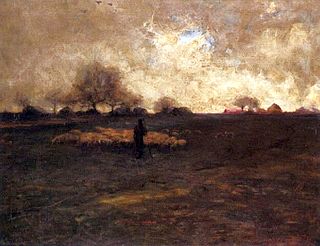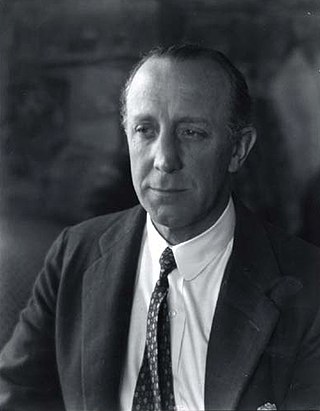Related Research Articles

Benjamin Lauder Nicholson, OM was an English painter of abstract compositions, landscapes, and still-life. He was one of the leading promoters of abstract art in England.

Patrick Heron was a British abstract and figurative artist, critic, writer, and polemicist, who lived in Zennor, Cornwall.

William Gear RA RBSA was a Scottish painter, most notable for his abstract compositions.
Brayane Herbert Wynter was one of the St. Ives group of British painters. His work was mainly abstract, drawing upon nature for inspiration.

Wilhelmina Barns-Graham CBE was one of the foremost British abstract artists, a member of the influential Penwith Society of Arts.
George Peter Lanyon was a British painter of landscapes leaning heavily towards abstraction. Lanyon was one of the most important artists to emerge in post-war Britain. Despite his early death at the age of forty-six he achieved a body of work that is amongst the most original and important reappraisals of modernism in painting to be found anywhere. Combining abstract values with radical ideas about landscape and the figure, Lanyon navigated a course from Constructivism through Abstract Expressionism to a style close to Pop. He also made constructions, pottery and collage.
Trevor Bell was an English Leeds-born artist and contemporary visual artist.
J D H Catleugh was a British abstract artist whose career began in the 1950s and continued until his death in 2009.

Thomas Millie Dow was a Scottish artist and member of the Glasgow Boys school. He was a member of The Royal Scottish Society of Painters in Watercolour and the New English Art Club.

Algernon Mayow Talmage was a British Impressionist painter.

Jeremy Gardiner is a contemporary landscape painter who has been based in the United Kingdom and the United States. His work has been featured in books. It has also been reviewed in The Boston Globe, Miami Herald, The New York Times, and British newspapers including The Guardian and The Observer. He is represented by the Portland Gallery in London.
Paul Ludwig Horst Feiler was a German-born artist who was a prominent member of the St Ives School of art: he has pictures hanging in major art galleries across the world.

Paul Hampden Dougherty was an American marine painter. Dougherty was recognized for his American Impressionism paintings of the coasts of Maine and Cornwall in the years after the turn of the 20th century. His work has been described as bold and masculine, and he was best known for his many paintings of breakers crashing against rocky coasts and mountain landscapes. Dougherty also painted still lifes, created prints and sculpted.
David Haughton (1924–1991) was a British artist associated with the St Ives movement. Many of his paintings, etchings and drawings feature aspects of the Cornish landscape, particularly the area around St Just.
Richard Vernon Francis Cook is a British painter living and working in Newlyn, Cornwall. Cook has been exhibiting for over twenty five years and has received awards from the British Council and the Arts Council. In 2001 he was given a solo show at Tate St Ives, with a related publication, and a major painting was acquired for the collection in 2006. Further works are held in the British Museum collection.

Marguerite Horner is a British artist who won the 2018 British Women Artist Award. Her paintings aim to investigate, among other things, notions of transience, intimacy, loss and hope. She uses the external world as a trigger or metaphor for these experiences and through a period of gestation and distillation, makes a series of intuitive decisions that lead the work towards completion.

The Nine British Art is a private art gallery in St James's, central London, England. The gallery specializes in British art, with a focus on works from the St Ives group and the post-war period.
Nancy Guinness is a British figurative painter. Her work ranges from still life to landscape and portrait.
Marie Yates is a British fine conceptual artist whose artwork centers on addressing female representation and sexual difference in media and society. She was mentored by John Latham and exhibited alongside The Artist Placement Group. She is best known for her landscape works combining installation, text and imagery.
Beatrice Pauline Hewitt (1873-1956) was a British painter who created many works which consisted of ocean-themed landscapes, coastal scenes, flower subjects, figures, and portraits.
References
- Tim Woolcock: Modern British Artist, Author: John Bloxham
- Tim Woolcock Exhibition Catalogue
- Jorgensen Fine Art Exhibition Listing
- Boston 13th Fine Art Show
- Joanna Pitman, The Times (London) about Tim Woolcock
- Online Interview at MyHermosa.com
- Art Critic and Editor Carol Cordrey about Tim Woolcock
- Paisnel Art Gallery [ permanent dead link ]
- London Art Fair via Paisnel Art Gallery